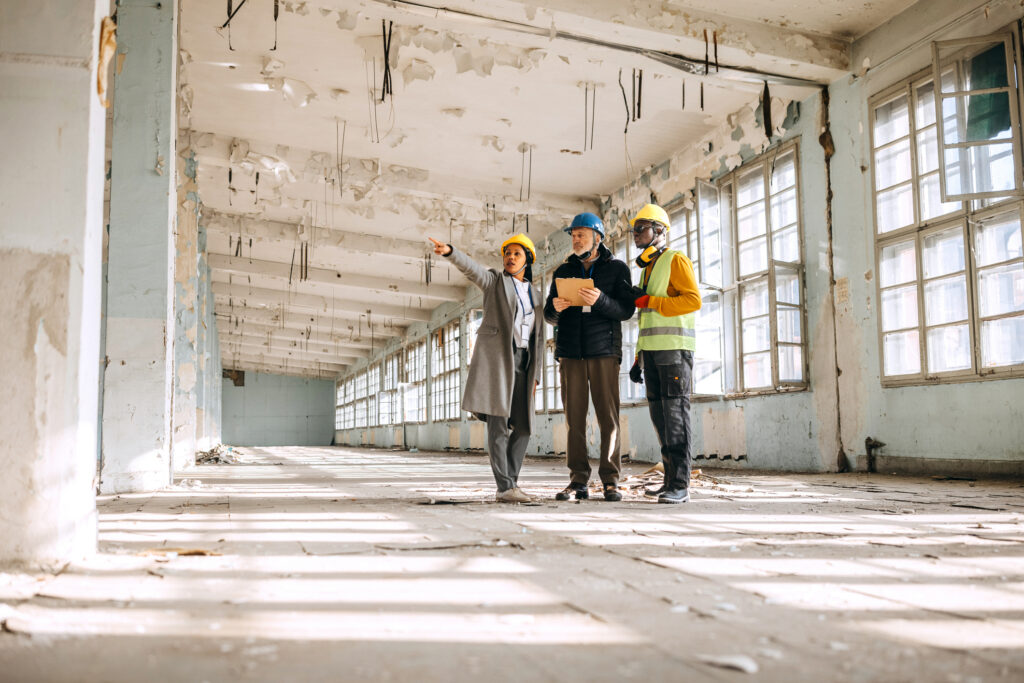A Day in the Life of a Construction Manager
Construction managers thrive in dynamic, fast-paced environments, where they can make the most of their vast skill sets while embracing an ever-changing array of challenges. This is a truly unique field, linking the hands-on satisfaction of construction with the joy of developing and seeing grand visions play out — all while working with diverse teams of passionate professionals.
As Jason Schroeder of Elevate Construction explains, despite the many unique challenges associated with construction management, this field is wonderfully empowering and can drive impressive career satisfaction. He also, however, acknowledges that this field calls for exceptional planning and coordination, which means bringing a deeply purposeful approach to every task.
Routines and regimens can help, offering structure in what could otherwise feel like a chaotic environment. No two days look exactly alike, but the right strategies can help construction managers rise to the occasion, no matter which challenges they face on the site or in the office.
In this day-in-the-life guide, we provide a thorough overview of common construction management workflows and responsibilities, complete with details about daily requirements and opportunities.
Pre-Dawn Preparation: The Calm Before the Construction Storm
A few minutes of preparation early in the day can set construction managers up for success in all tasks to follow. Schroeder feels that this is, hands down, the most important aspect of construction management for any given project. For this reason, he believes at least one-third of any project’s duration should be dedicated to planning and preparation. Much of this occurs during the early morning hours, long before everyday hustle and bustle begins at the construction site.
Reviewing Project Schedules and Plans
Ideally, each day will begin with a detailed review of the project plans and especially core objectives. This brief refresher should produce an instant sense of focus and purpose, helping construction managers feel prepared and empowered.
A quick review of the overarching timeline should reveal whether the project is on track and, if not, what needs to be done to maintain progress. The goal is always to avoid falling behind while also maintaining balance across a myriad of obligations, tasks, and platforms.
In addition, resource allocation should be a priority in construction management at this time, with managers verifying that the necessary materials and equipment are available (not to mention labor to get the job done).
Responding to Emails and Communications
Clients and stakeholders expect that construction managers will keep them in the loop about key developments. While communication is to be expected throughout the day, the morning hours provide a great chance to get a jump on this essential. After all, as construction management expert Jason Schroeder points out, it can be incredibly stressful to fall behind: He says this feels like “always responding and reacting just to catch up.”
Because construction managers may face an influx of emails in the morning, some may need to prioritize by responding to the most urgent and critical messages first while making a plan to deal with other communications later on.
Prepping for Safety
As a central aspect of construction safety management, construction managers are often responsible for conducting safety briefings, which keep team members aware of any potential hazards. However, while planning for the day, construction managers may also need to conduct risk assessments — drawing on insights from previous safety reports or incidents along with integrating up-to-date details gathered during construction site walkthroughs. These walkthroughs should uncover the need for specific control measures, such as installing safety barriers or using personal protective equipment (PPE).
On-Site Hustle: Where the Action Truly Happens
Planning sets the stage for a successful day, but plans must give way to action. This occurs on the construction site, where managers offer guidance and support while team members tackle a variety of tasks. This dynamic setting can bring about unanticipated challenges, but in general, construction managers will delegate essential tasks, track milestones, and inspect work quality.
Morning Site Inspection
Construction managers typically perform daily site inspections that include the following areas and concerns:
- Site access – Are access routes clear to ensure that necessary materials or personnel can reach the job site?
- Site cleanliness – Are materials and equipment properly organized? Are proper waste disposal resources and processes in place?
- Work progress – Does the work completed align with the project schedule and timeline?
- Safety – Are signs and safety barriers available to guide team members? Have any new safety hazards emerged — and how will they be addressed? These are all crucial considerations in terms of construction safety management.
Should inspections reveal any concerns or deficiencies, it’s up to construction managers to implement relevant solutions. This may call for coordination with safety officers, subcontractors, or project engineers.
Leading Team Meetings and Briefings
As mentioned previously, safety briefings should be a job site priority. These briefings may highlight potential hazards while also reviewing emergency preparedness protocols: evacuation procedures, emergency equipment, site access concerns, and more. Briefings may touch on other concerns identified during the morning inspection.
Troubleshooting and Problem-Solving
Chances are, inspections and briefings will uncover at least a few problems that need to be addressed during the day. Understanding the nature of the problems and the cause is critical to resolving them. The CM can be instrumental in providing a culture of awareness and rapid resolution of these issues.
Problem-solving efforts call for coordination with subject matter experts, such as architects, environmental consultants, or supply chain managers. Root cause analyses can pinpoint underlying causes, but feasibility evaluations will be needed to ensure that proposed solutions are viable from a timing, budgetary, or project scope perspective.

Midday Crunch: Fueling Up for the Afternoon Push
Following a busy, briefing-filled morning, construction managers should take a brief pause. This helps avoid burnout or exhaustion, instead giving managers the chance to recharge and recover the excitement that fueled the first few hours of the day.
Lunch Break and Networking Opportunities
Whether enjoyed on the work site, at the office, or at a restaurant, lunch is one of the most relaxing and necessary parts of any construction manager’s day. This is more than a time to fuel up, however; lunch provides the perfect opportunity to chat with current clients and stakeholders or even to get to know potential partners. These discussions can provide powerful insights, but more notably, they are enjoyable. Building relationships with team members is crucial to success in construction, and it’s best pursued during lunch.
Reviewing Project Budgets and Costs
Following a relaxing lunch break, construction managers are ready to dive back into their work. As with the early morning, afternoon initiatives will be more purposeful and impactful if they are preceded by dedicated planning. This is an optimal time to review budgetary concerns, such as cost breakdowns for labor and materials. This effort may involve financial management software, which is easy to update and may also play a valuable role in forecasting future expenses.
Updating Project Documentation
Construction projects produce a tremendous amount of documentation. Without dedicated sessions for reviewing and updating those documents, managers can fall behind. Many commit to gathering and cross-checking documents during the afternoon hours. Such construction management efforts could involve revised blueprints or as-built drawings, along with updated budgets, invoices, or progress reports.
Afternoon Grind: Wrapping Up and Preparing for Tomorrow
As afternoon moves into evening, these final hours may be fueled, in part, by the satisfaction of seeing critical tasks get completed. From there, construction managers and their teams can look ahead to the next day’s opportunities.
Debriefing With the Team
Debriefing encourages construction managers and team members to reflect on all they’ve accomplished and look forward to additional progress in the future. Prior to debriefing, construction managers should gather relevant information from safety logs, deficiency logs, and progress reports. Once gathered with team members, managers should review the previously established objectives for the project and that particular day, then discuss what went well and where room for improvement may exist. Additionally, team members should have the chance to provide feedback.
Preparing for the Next Day
Not all planning takes place during the morning. A little advance planning can set construction managers up for success down the road. Final tasks may involve updating project plans, revising blueprints, or even chatting with subcontractors. This is also an ideal time to review the following day’s schedule while beginning to set new objectives for tomorrow. A final email check can prevent construction managers from feeling as if they need to tackle a flood of email in the morning.
Conducting Final Site Inspections
Final site inspections are just as important as their morning counterparts. This particular inspection places a greater emphasis on checking work that has been completed. Examinations may involve plumbing, electrical systems, and various other project components. Safety walkthroughs play a vital role in construction safety management, revealing whether protocols have been followed — and, if not, how violations can be addressed or avoided in the future.
Elevate Your Construction Management Career With a Texas A&M
Looking to take the next step in your construction management career? If you envision a future in the construction field and would like to continue climbing this unique career ladder, you will benefit from pursuing graduate-level training.Texas A&M University provides excellent opportunities for aspiring construction managers. Our online Master of Science in Construction Management provides a deep dive into scheduling techniques, cost estimating, construction operations, sustainable building, and risk management. Reach out today to request further information and learn more about this compelling, multidisciplinary degree program.


